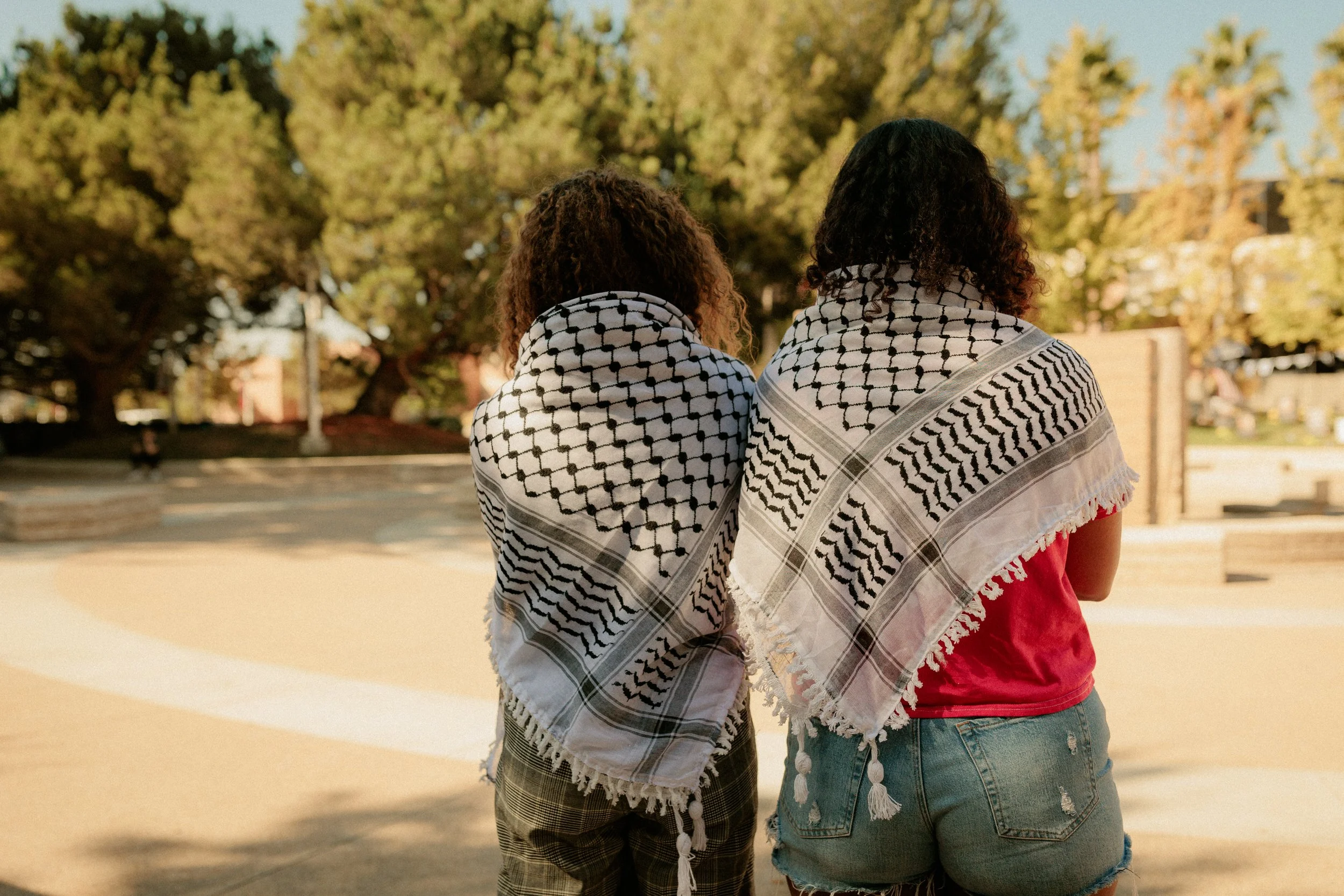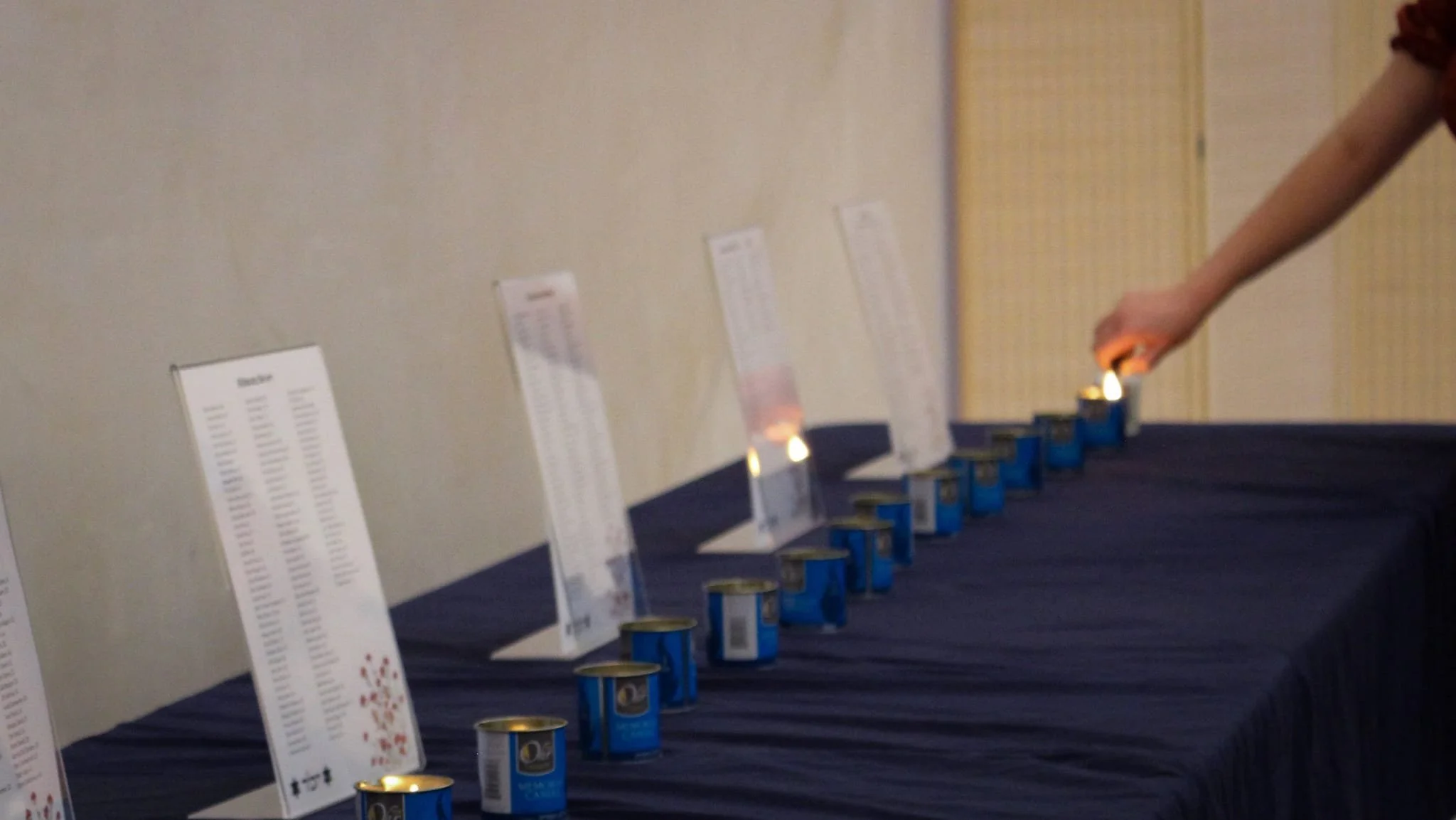One year later: an uneasy atmosphere on campus
Photo by Emily Paris, Photo Editor
The first anniversary of the Oct. 7th attack on Israel and subsequent war in Gaza has left Chapman’s campus in an uneasy state. While Israeli students held a vigil for the anniversary, pro-Palestinain students staged no counter-demonstrations. The scene on campus is a far cry from the scene at Chapman eight months ago, when pro-Palestinian students set up an encampment on campus.
One of the first key events that occurred on campus was the encampment in solidarity with Gaza organized by Chapman’s Students for Justice in Palestine (SJP).
The encampment was launched on May 2, 2024, and students said they would not leave until the university agreed to divest funds from all brands that supported occupation within Palestine. The encampment lasted for two weeks until SJP reached an agreement with the university. The students agreed to clear the area and remove their tents and the administration agreed to listen to their proposal for divestment and transparency.
“We have agreed to allow them to present their proposal for divestment and transparency to the Investment Committee of the Board, and the committee will vote on the students’ proposal,” President of Chapman University Daniele Struppa, who has a doctorate in mathematics, said on May 17th.
Chapman University made alterations to its Facility Use and Event Policy and banned all encampments on campus grounds starting September 2024.
Following their agreement with Chapman, on Sept. 10, SJP presented its formal demands to the university board. The divestment plan asked Chapman to sell off stocks and other holdings connected to the Military Industrial Complex, and reinvest them in “ethical alternatives.” It also called for the establishment of a task force that is made up of students, faculty, staff and chairs to ensure ethical actions within future investments. The last demand was transparency in the process of divestment and offering updates to stakeholders, students, alumni, faculty and staff.
That plan was rejected by the Chapman Board of Trustees on the same day it was presented. Representatives of Students in Support of Israel (SSI), who also spoke to the Board of Trustees, hailed the vote as financially responsible. Representatives of SJP, bitterly disappointed, promised to keep pushing until the divestment was completed.
SJP spokespeople say efforts to draw attention to the need for divestment have been made more difficult by a series of free speech restrictions imposed by the university. The new restrictions include a ban on encampments, megaphones and a ban of any sound disrupting class.
At other universities, pro-divestment protesters have interrupted job fairs attended by companies with military ties. At others, wealthy donors sympathetic to Israel have called for the resignations of college presidents. Yet so far, none of that has occurred on Chapman’s campus. Instead, students have focused on megaphones, chalk wars and the use of loud music in order to disrupt classes. Due to these forms of protest, Chapman has made changes to its policies, such as the banning of encampments and the banning of amplified sound.
A recent confrontation that occurred after Chapman’s decision to not divest, was the controversial protest held by SJP where they wrote in chalk “Fuck Israel,” “Hillel Supports Genocide” and “Chapman Kills.” This protest sparked debate on campus in regard to free speech and what exactly differs from hate speech and free speech. During this protest, Hillel, the largest Jewish campus organization in the world, was holding a tent and handing out bagels, whilst this incident occurred.
As SJP members disagree about the alterations to Chapman’s policy, other students say it makes them feel more supported.
Photo by Emma Johnson, Staff Photographer
At the vigil held on Oct. 7 of this year, Chapman SSI, commemorated the events that happened a year prior. The memorial included speeches from Director of Jewish Life Rabbi Cassi Kail and President of SSI Max Wisemann. The vigil was organized to honor the lives and hostages that were taken on Oct. 7 of last year.
Students on both sides have become increasingly cautious about speaking out publicly than they were a year ago.


